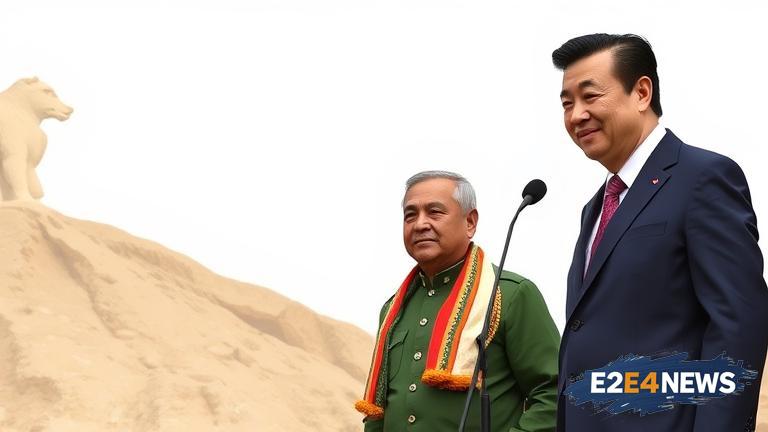Chinese Foreign Minister Wang Yi’s recent tour of India, Afghanistan, and Pakistan has sent shockwaves throughout the region, as the world watches with bated breath to see how this high-stakes diplomatic maneuver will play out. The visit, which took place in late March, was seen as a significant attempt by China to bolster its ties with its neighbors and assert its influence in the region. For India, the visit was particularly noteworthy, as it came at a time when tensions between New Delhi and Beijing have been running high. The two nations have been engaged in a bitter border dispute, with both sides accusing each other of aggression and territorial encroachment. Despite these tensions, Wang Yi’s visit was seen as a positive development, with many analysts hailing it as a significant step forward in India-China relations. During his visit, Wang Yi met with Indian External Affairs Minister S. Jaishankar, where the two leaders discussed a range of issues, including trade, security, and regional cooperation. The meeting was seen as a crucial opportunity for the two nations to reset their relationship and work towards a more collaborative and constructive partnership. One of the key areas of focus during the visit was the issue of trade, with China seeking to increase its exports to India and India looking to reduce its trade deficit with China. The two nations also discussed the issue of security, with China expressing concerns about the growing presence of the United States in the region and India seeking to reassure Beijing that its ties with Washington were not aimed at containing China. In addition to his meetings with Indian leaders, Wang Yi also visited Afghanistan and Pakistan, where he held talks with senior officials and reiterated China’s commitment to regional stability and cooperation. The visit was seen as a significant attempt by China to assert its influence in the region and to promote its own brand of diplomacy, which emphasizes cooperation, mutual respect, and non-interference in the internal affairs of other nations. For Afghanistan, the visit was particularly significant, as it came at a time when the country is struggling to rebuild and recover from decades of conflict and instability. China has been a key player in Afghanistan’s reconstruction efforts, and Wang Yi’s visit was seen as a reaffirmation of Beijing’s commitment to the country’s development and stability. In Pakistan, Wang Yi met with senior leaders, including Prime Minister Imran Khan, where the two sides discussed a range of issues, including trade, security, and regional cooperation. The visit was seen as a significant development in China-Pakistan relations, which have been growing increasingly close in recent years. Overall, Wang Yi’s tour of India, Afghanistan, and Pakistan marks a significant shift in regional diplomacy, with implications for India-China relations, regional stability, and the broader South Asian landscape. As the region continues to evolve and change, it remains to be seen how this high-stakes diplomatic maneuver will play out, but one thing is clear: China is committed to asserting its influence in the region and promoting its own brand of diplomacy. The visit has also sparked a debate about the role of China in the region, with some analysts hailing it as a positive development and others expressing concerns about Beijing’s growing influence. Despite these concerns, it is clear that China is a major player in the region, and its actions will have significant implications for the future of South Asia. The visit has also highlighted the importance of diplomacy and dialogue in resolving regional conflicts and promoting cooperation. As the region continues to navigate the complexities of geopolitics, it is clear that diplomacy will play a crucial role in shaping the future of South Asia. In conclusion, Wang Yi’s tour of India, Afghanistan, and Pakistan marks a significant development in regional diplomacy, with implications for India-China relations, regional stability, and the broader South Asian landscape. As the region continues to evolve and change, it remains to be seen how this high-stakes diplomatic maneuver will play out, but one thing is clear: China is committed to asserting its influence in the region and promoting its own brand of diplomacy.
